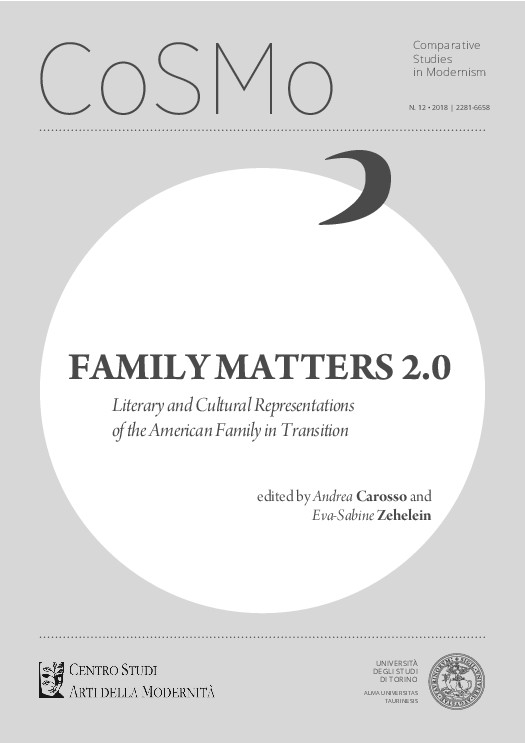“Boyish and Almost Gay”: Celibate Men and Fathers in Sherwood Anderson’s “The Triumph of the Egg”
DOI:
https://doi.org/10.13135/2281-6658/2571Parole chiave:
Sherwood Anderson, The Triumph of the Egg, modernism and sexuality, celibacy, modernism and masculinityAbstract
Benjamin Kahan’s 2013 book on celibacy and modernism investigates celibacy in early 20th century United States as a prominently urban issue, questioning and to some degree discarding the commonplace of a sexually saturated modernism. This article aims at broadening up the scope of this analysis by investigating celibacy and sexuality in Sherwood Anderson’s short stories, mostly set in small provincial towns. The main contention of the article is that in Anderson’s stories male celibacy questions the social and symbolic order sanctioned by the typical nuclear family of rural and peripheral towns of the United States. More specifically, the stories discussed here and collected in The Triumph of the Egg overthrow the traditional attribution of sexual roles within the nuclear family, thus subverting the usual representations of both masculinity and fatherhood.
Downloads
##submission.downloads##
Pubblicato
Fascicolo
Sezione
Licenza
Gli autori mantengono i diritti sulla loro opera e cedono alla rivista il diritto di prima pubblicazione dell'opera, contemporaneamente licenziata sotto una Licenza Creative Commons - Attribuzione che permette ad altri di condividere l'opera indicando la paternità intellettuale e la prima pubblicazione su questa rivista.







